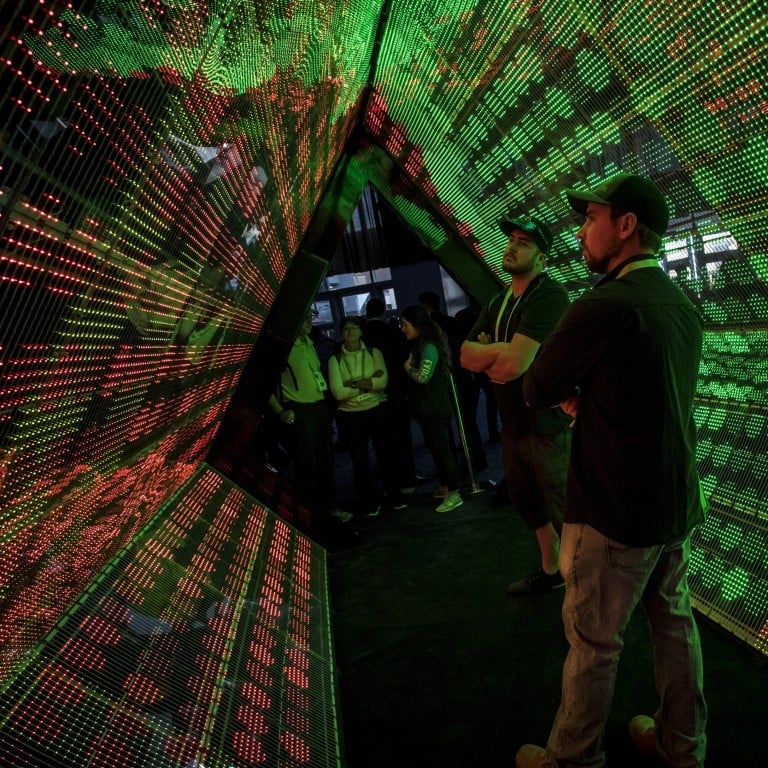
The coronavirus pandemic may seed the next big thing in tech – and you’ll never guess what it is
- There is little doubt that the pace of truly original new inventions has slowed, even if the application of existing ones has accelerated
- Bill Gates warned of a global pandemic five years ago but at Microsoft he was slow to recognise the internet and repeated the same mistake years later
One of the benefits of spending a lot of time at home during the pandemic is the chance to catch up on viewing. Most people are binge-watching Netflix but thanks to the generosity of my local cable provider, all the premium movie channels have been made available for free during the current period.
I’ve been able to catch up on a couple of cult sci-fi movies from the 1990s that depicted a dystopian 21st century. It has been fun watching how Hollywood perceives future technology.
In Escape from LA (1996), the Snake Plissken character played by Kurt Russell carries a doomsday device that stores vital data on a miniature version of the CD-ROM. The concept of digital solid state storage – aka the thumbdrive, now cloud storage – was not foreseen – even as late as the mid 90s.
In Judge Dredd (the 1995 version with Sylvester Stallone), news is broadcast on a fixed TV screen by a CNN-style commentator. Information delivered to the population via the internet and directly to personal digital devices was also not foreseen.
The original Star Trek TV series from the 1960s did better, foreseeing handheld communicators and Siri-like talking computers. Some inventors even said they were inspired by these sci-fi props to come up with the real thing.
Given that massive disruptions to society – whether from wars or pandemics – are often the catalyst for ground breaking new technologies, there have been many predictions about tech in the post Covid-19 world.
Telehealth, working from home and online shopping are most often cited as benefiting from the new world order, while the global crisis has shown sceptics that AI can be used for good and not evil. However, the fundamental technologies behind these applications are not new.
While the 21st century has given us the smartphone and apps, the most commercially successful and life changing technology since the PC, mobile phone and internet of the last century, there is little doubt that the pace of truly original new inventions has slowed, even if the application of existing ones has accelerated.
So, to paraphrase the often quoted statement wrongly attributed to the head of the US patent office in 1899: “Has everything that can be invented, been invented?” Is the human race doomed to have the same toolbox of tech that we have today – except for faster, smaller, cheaper and different versions?

Clearly, the answer to that is “no”. When the 1918 flu pandemic killed millions, the virus that caused it was too small to be seen by optical microscopes. It would be the 1930s before scientists could even see what a virus looked like, thanks to the development of electron microscopes.
By the time the next 100 year global pandemic returns, the tech we have today will seem just as quaint.
Whatever happens over the coming decades, history tells us one thing: Nobody will be able to foresee the next big thing in tech.
Will the coronavirus crisis give birth to the next big thing in China tech?
Take the smartphone as an example. Well before it became ubiquitous there were a string of hyped devices that came and went quickly: Apple’s Newton PDA, the PalmPilot and Blackberry. While none achieved sustained success, their various technologies ended up in the product that became the smartphone.
But there was no smartphone hype years in advance. There was certainly excitement when Apple introduced the first iPhone in 2007, but that was more about an iconic computer maker and its charismatic leader Steve Jobs trying to unseat traditional mobile phone makers.
Nobody really expected the iPhone – and the app universe it enabled – to change the way everybody on the planet behaved when it came to listening to music, taking photos, consuming content, and communicating with our fellow humans.
Similarly, many of the major inventions of the 20th century were at first ignored or considered inconsequential – especially by the vested interests of the day.
Gates recently admitted that Microsoft’s “greatest mistake ever” was letting Google’s Android win in the mobile operating system market. He was blinded by his own company’s vested interests.
The most disappointing tech ‘innovations’ of the decade
Some have speculated that the age of the individual inventor is over – no more “eureka” moments in the garage. New breakthroughs, the argument goes, will come from large teams, big data, or from AI algorithms working on problems.
The world won’t notice the next big thing in tech until it has arrived but the seeds may have already been planted thanks to the novel coronavirus.
Craig Addison is a production editor on the Post’s tech desk in Hong Kong. Follow @craigaddison

